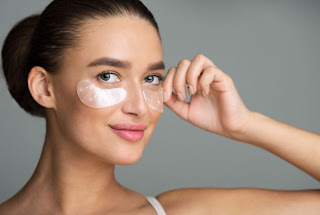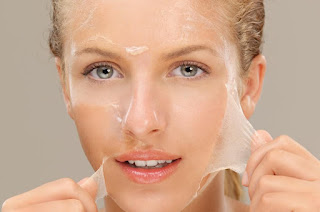Skin Whitening Treatment: Most Effective Ways to Brighten Your Complexion
Introduction
Looking to brighten your complexion? Skin whitening treatments have become a go-to solution for many seeking a more even skin tone. But with so many options out there, it's crucial to understand the safest and most effective methods. Whether you're dealing with hyperpigmentation, dark spots, or just aiming for a lighter skin tone, this guide will walk you through everything you need to know about skin whitening treatments.
Understanding Skin Whitening
Definition and Purpose
Skin whitening, also known as skin lightening or bleaching, involves using various treatments to achieve a lighter skin tone. The primary purpose is to reduce melanin content in the skin, which can help lighten areas of hyperpigmentation, dark spots, and overall skin tone.
History and Cultural Significance
Skin whitening has deep roots in various cultures around the world. From ancient Egyptian beauty rituals to modern-day practices in Asia and Africa, the desire for lighter skin has been influenced by cultural norms, societal pressures, and beauty standards.
Common Reasons for Skin Whitening
Cosmetic Desires
Many individuals seek skin whitening treatments to enhance their appearance. A lighter, more even complexion is often associated with beauty and youthfulness, driving people to explore various options.
Hyperpigmentation and Skin Conditions
Conditions like melasma, sun spots, and post-inflammatory hyperpigmentation can cause uneven skin tone. Skin whitening treatments can help manage these issues, providing a more uniform complexion.
Societal and Cultural Influences
In some cultures, lighter skin is perceived as more attractive or desirable, leading individuals to pursue skin whitening treatments to align with these beauty standards.
Popular Skin Whitening Treatments
Over-the-Counter Products
The market is flooded with over-the-counter skin whitening products. These include creams, serums, soaps, and cleansers that promise to lighten your skin tone.
Whitening Creams and Serums
These products often contain ingredients like kojic acid, glycolic acid, and vitamin C. They work by inhibiting melanin production and promoting skin cell turnover.
Soaps and Cleansers
Whitening soaps and cleansers typically contain natural ingredients like papaya, licorice, and bearberry extracts. They are designed for daily use to gradually lighten the skin.
Pros and Cons
While over-the-counter products are easily accessible and affordable, their effectiveness can vary. Some may cause irritation or allergic reactions, so it's essential to choose products carefully.
Prescription Treatments
For more significant results, prescription treatments might be necessary. These are usually recommended by dermatologists and include stronger formulations.
Hydroquinone
Hydroquinone is a powerful skin lightening agent that reduces melanin production. It's highly effective but can cause side effects like redness and dryness if not used properly.
Retinoids
Retinoids, derived from vitamin A, help accelerate skin cell turnover, reducing the appearance of dark spots and hyperpigmentation.
Corticosteroids
Corticosteroids can help lighten skin by reducing inflammation and melanin production. However, long-term use can lead to thinning skin and other side effects.
Natural Remedies
For those who prefer a gentler approach, natural remedies can offer skin whitening benefits with minimal side effects.
Lemon Juice and Other Citrus Fruits
Rich in vitamin C, citrus fruits like lemons can help lighten the skin and reduce dark spots. However, they can be harsh on sensitive skin, so it's best to use them sparingly.
Aloe Vera
Aloe vera is known for its soothing properties and can help lighten hyperpigmentation with regular use.
Turmeric
Turmeric has been used for centuries in traditional medicine for its anti-inflammatory and skin-brightening properties. Mixing turmeric with honey or yogurt can create a potent skin lightening mask.
Advanced Skin Whitening Procedures
Chemical Peels
Chemical peels involve applying a solution to the skin that causes the top layer to peel off, revealing lighter, more even-toned skin beneath.
Types and Effectiveness
There are different types of chemical peels, ranging from mild to deep. Glycolic acid and salicylic acid peels are commonly used for skin lightening.
Potential Side Effects
Chemical peels can cause redness, peeling, and sensitivity. It's essential to follow post-treatment care instructions to avoid complications.
Laser Treatments
Laser treatments target melanin in the skin, breaking it down to lighten dark spots and even out skin tone.
How It Works
Lasers emit light energy that is absorbed by the melanin, causing it to break down and be absorbed by the body.
Benefits and Risks
Laser treatments are highly effective but can be expensive and require multiple sessions. There is also a risk of burns and scarring if not performed by a qualified professional.
Microdermabrasion
Microdermabrasion involves exfoliating the top layer of skin using a special device, promoting new skin growth and a brighter complexion.
Procedure Details
During the procedure, a handheld device sprays tiny crystals onto the skin, which are then vacuumed away along with dead skin cells.
Pros and Cons
Microdermabrasion is less invasive than chemical peels and lasers, but it may require multiple sessions to see significant results.
Safety and Risks of Skin Whitening
While skin whitening treatments can offer significant benefits, they also come with risks. Overuse of certain products, like hydroquinone and corticosteroids, can lead to severe skin damage. It's crucial to consult with a dermatologist before starting any treatment to ensure it's safe for your skin type.
Maintaining Results
Achieving a lighter complexion is just the first step; maintaining it requires ongoing care. Use sunscreen daily to protect your skin from UV damage and avoid habits that can cause hyperpigmentation, like excessive sun exposure and smoking.
Post-Treatment Care
After undergoing any skin whitening treatment, follow a strict skincare regimen. This includes moisturizing regularly and avoiding harsh skincare products that can irritate the skin.
Lifestyle Changes for Lasting Results
Healthy lifestyle choices, like eating a balanced diet rich in antioxidants and staying hydrated, can help maintain your results. Regular exercise and adequate sleep also contribute to healthy, glowing skin.
Conclusion
Skin whitening treatments offer various options for those looking to brighten their complexion. From over-the-counter products to advanced procedures, there's a solution for every preference and budget. However, it's essential to approach skin whitening with caution and prioritize safety. Consult with professionals, follow recommended guidelines, and embrace healthy lifestyle habits for the best results.




Comments
Post a Comment